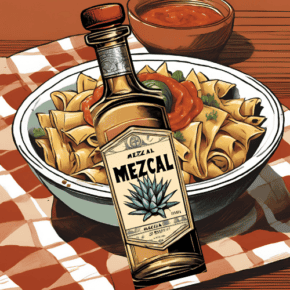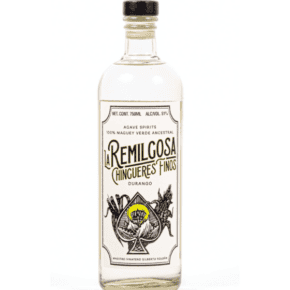Taking everyone by surprise, on February 25th the Mexican government canceled NOM-199 which had gone into effect at the end of 2020. To refresh memories, NOM-199 was the regulation years in the making to oversee the alcohol industry in Mexico: It governed everything from acceptable chemical levels to how distillates that did not fall under current DOs would be regulated, including destilados de agave, rum, whisky, aguardientes and gin.
As Clayton Szczech noted when the bill was first introduced “The omnibus proposal would define and regulate all alcoholic beverages – domestic and imported – sold commercially in Mexico. It was created with the participation of the Tequila Regulatory Council, the National Chamber of the Tequila Industry, the Mezcal Regulatory Council, Diageo, Pernod Ricard, and Mexico’s two beer giants (note that this doesn’t necessarily mean that any one of them endorse the final document in its entirety).”
When presented for public commentary back in 2015/2016, the proposed NOM invited a great deal of skepticism and critique, initially proposing that non-DO agave distillates could not use the words agave or maguey anywhere in their labels, and suggested instead the word “komil” for any uncertified agave spirits. It was so absurd that we registered the Komilistas.com domain. The bill was presented as a way to protect the consumer, but it was seen as a way to restrict the production of Mexico’s uncertified regional spirits. Those same spirits had largely been excluded from promotion and protection by those same DOs. You can see all of our previous coverage on NOM-199 here.
As NOM-199 advanced, some of the more inflammatory parts were amended and it became clear it would pass into law. The CRM began ensuring that it would test for a new parameter of methanol levels of 30-300mg per 100ml of alcohol, far below the accepted levels in both the US and Europe, and problematic for anyone adhering to traditional mezcal production. We hosted a talk with Dr. Ivan Saldaña and Erick Rodriguez here about the impact of these defined levels on mezcal production.
We were just beginning to wrap our head around the new rules and regulations when we began hearing from some agave distillates producers in Mexico about some problems they had encountered with the new rules. Uncertified destilados de agave were required to send samples to labs to ensure they adhered to the required levels, with some destilados de agave finding themselves in a weird situation of meeting the CRM levels, but failing the NOM-199 level when it came to esters which NOM-70 does not measure. This put them in the Kafkaesque position of having to decide whether to go through the formal mezcal certification process or try to figure out how to navigate this new certification system under NOM-199, all of which required financial outlays outside of their original budget projections. Then – BOOM! – news of the cancellation.
We weren’t really all that surprised given the scope of 199, it was so immense it seemed destined to fail, especially since no one could really figure out who was going to regulate and how they were going to manage the different categories of destilados. So the big question is ‘what does this mean for anyone producing destilados outside of DOs?’ That is very much unknown. Regulation will default to NOM-142, which is really more about health and sanitation, and of course making sure that all required taxes are paid. There also seems to be a question as to whether or not NOM-199 has been completely canceled or if there are still ongoing negotiation and debate about what will happen.
One thing is for certain, this leaves the entire Destilados de Agave category in limbo. Without the presence of NOM 199 to give it at least a veneer of being regulated, it is much easier for the CRM to continue painting the category as unsafe and not credible. In the meantime as this all gets sorted out, anyone with a destilado de agave brand will want to make sure they have all the lab analysis paperwork for any product being exported, and a really good accountant.













Leave a Comment